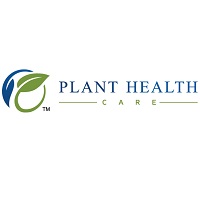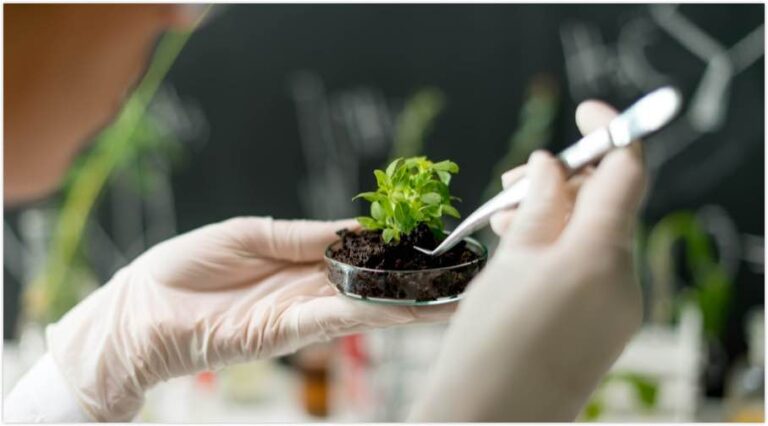Plant Health Care plc (LON:PHC) Chief Executive Officer Dr Chris Richards caught up with DirectorsTalk for an exclusive interview to discuss the performance of their commercial products, the cash-positive goal, Innatus 3G licencing and the development of the PREtec peptides.
Q1: Can you tell us how Plant Health Care is performing in regard to its commercial products?
A1: We’re extremely encouraged with the growths of Harpin αβ which is our main commercial product. We have been developing that product now, particularly in fruit and vegetable markets in a number of different countries over the last few years and we’re now on an established growth track with that.
I’m actually in Mexico as we speak today and it’s fascinating, for export of tomatoes and peppers, for example, which are grown in the north-west of Mexico for export to the US, the team there tell me that about a third of that area is now treated with Harpin αβ which is most encouraging. We see the sales of Harpin αβ in Mexico have been growing at 20% a year and we anticipate continued growth. In other markets like Spain, the Pacific Northwest coast of the US, the Cape in South Africa, we are established and growing rapidly in those markets and there are more markets for us to go at.
So, that’s what’s really driven our 23% compound annual growth rate in Harpin αβ sales in the last 5 years.
So, we encouraged about that but on top of that, we have two new opportunities which we’re pursuing. The first of these is Brazilian sugarcane, fruit and vegetables I love them I think they’re wonderful but there are 10 million hectares of sugarcane in Brazil, it’s just a massive crop. Our launch quantity we sold back in the first quarter of this year, we sold a lunch quantity of $400,000 which, for a company who last year sold $7.7 million, that’s really significant. We’ve worked on this market for the last 3 or 4 years with trials, demonstration trials in the last year have been even more encouraging than the previous years and led to increases of yield of greater than 20% which is an extraordinary reward from a single application relatively low dose. This helps the sugarcane enormously, especially in times like now when the sugar price is low, it helps the efficiency of the plants.
We’re also very excited that we’ve got a very strong distributor in Coplacana which is the largest, very well-established, sugarcane cooperative in Brazil and they supply well over half of the agricultural inputs for sugarcane in certainly San Paulo where the majority of the cane is. So, they’re very very strong, they’re very excited about this product so we expect further significant sales this year. If you calculate, if we only get 2.5% of those 10 million hectares treated, that would give us $5 million, it will take us 2/3/4 years to get there but our internal forecasts, if you can imagine, are significantly higher than that. So, we’re excited about Brazilian cane and it’s going really really well.
The second one is we have reached a new agreement in the US that gives us access – finally, we’ve been seeking this for some time – to the seed treatment market in corn, in maize and there are 90 million acres of corn in the US and we’ll make our first sales this year. Unfortunately, I can’t say very much more about because I can’t pre-empt the launch which will be, we plan, in September this year and we’ll give more news as we can, but we see very significant potential here. So, our market expectations are for $10 million of sales in this year and we’re feeling very confident of meeting that target.
Q2: I think you’ve already alluded to this but how do you think you will achieve your goal of becoming cash positive and, I guess more importantly, when is it likely to happen?
A2: This is an absolutely key goal for Plant Health Care. We raised cash earlier this year and we do not aim to raise more cash, we will, as they say, ‘cut our coats to suit our cloth’, we will make sure that our cash runway lasts.
We currently have just over $6 million in the bank and our commercial business is now generating cash and that’s really significant, that will start to release our cash burn, our cash burn will reduce significantly in 2018 versus 2017 and it will reduce further in ’19. We will adjust our spending, we are forecasting to spend less on R&D than we have done and in other areas as well, administration particularly, to ensure that we become cash positive whilst maintaining our core capability in R&D and other areas.
We are very confident of achieving cash positive no later than 2020.
Q3: Is there anything that you can update us with regards to the Innatus 3G licencing?
A3: Yes absolutely. We have some good progress in some areas but a major disappointment in Brazil.
First, on Brazil, we did trials in the 2016/17 soybean crop in Brazil where we found, as many other people found, the conventional fungicides were failing to deliver good control of Asian Soybean Rust and other disease in soy. That’s a major major problem for soybean growers in Brazil and indeed the providers of conventional fungicides and when we did those trails and we added our Innatus 43G peptides to fungicides, we lifted disease control significantly. That was very very exciting, and we took those results to the major fungicide companies and they all said, let’s try it and we’ll see, so on that basis we were confident on getting a licence in the second half of 2018.
Unfortunately, the 2017/18 trials, conventional fungicides worked really really well so frankly, although we did give some benefit in disease management over conventional fungicides, it was really hard to improve on the conventional fungicides so, frankly, we were unable to demonstrate that there was an improvement. So, we will try again next year but it means that, frankly, our partners don’t have any level of conviction based on the trials from ‘17/18.
However, the good news is that we also had trials in soybean in Brazil which showed a very promising yield increase of 6%-7% even with low application rates and that’s a very very valuable proposition for soybean growers. So, we will continue testing in the next crop, both disease management and the yield management benefits of Innatus 3G peptides but sadly we’re going to need more time before we have good enough data to be able to seek a licence so sadly, we have had to tell the market that we won’t get a licence this year.
Outside Brazil however, our partners continue to test both Innatus 3G and our other peptides on many many crops and in many regions, well over ten crops and we’re getting some very very interesting results. I have to say that our relationships with our partners have never been closer, the engagement, the level of interest has never been better, and we are confident that these will lead a real palpable third-party endorsement of our technology in relatively short order but frankly, from I sit as the CEO and its wary of giving timing on that now, it’s since we failed to deliver what we said in 2018. I continue to be very optimistic based on the conversations we’re having with our partners that that third-party endorsement will come.
Q4: With regards to Plant Health Care’s trials on other PREtec peptides, how’s this developing?
A4: That also continues to go very well, here we’re talking about our nematode controlled platform, T-Rex and our biostimulant platform Y-Max. Again, our partners continue to evaluate these platforms and indeed there’s new interest and I’m quietly confident that we will be adding to our list of partners over the coming months. Nematodes are little worms in the soil which set back crops very severely in certain areas and they’re really really hard to control and our peptides are giving good results.
So, that together with our engagement with partners on Innatus 3G does make me have a very high level of conviction about the long-term potential of our PREtec Plant Response Elicitor technology. It’s going to take a little bit more time than we anticipated but this technology remains a very very exciting new biological technology which has the potential to reduce the amount of toxic agri-chemicals that are used and to benefit farmers around the world.









































